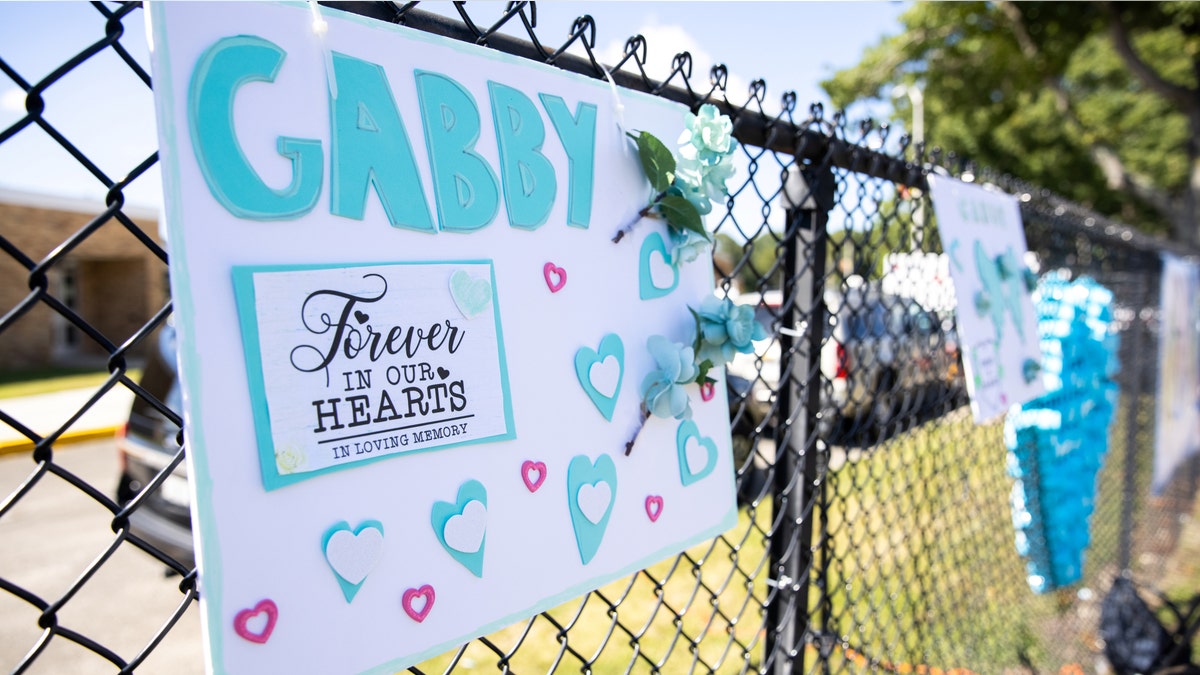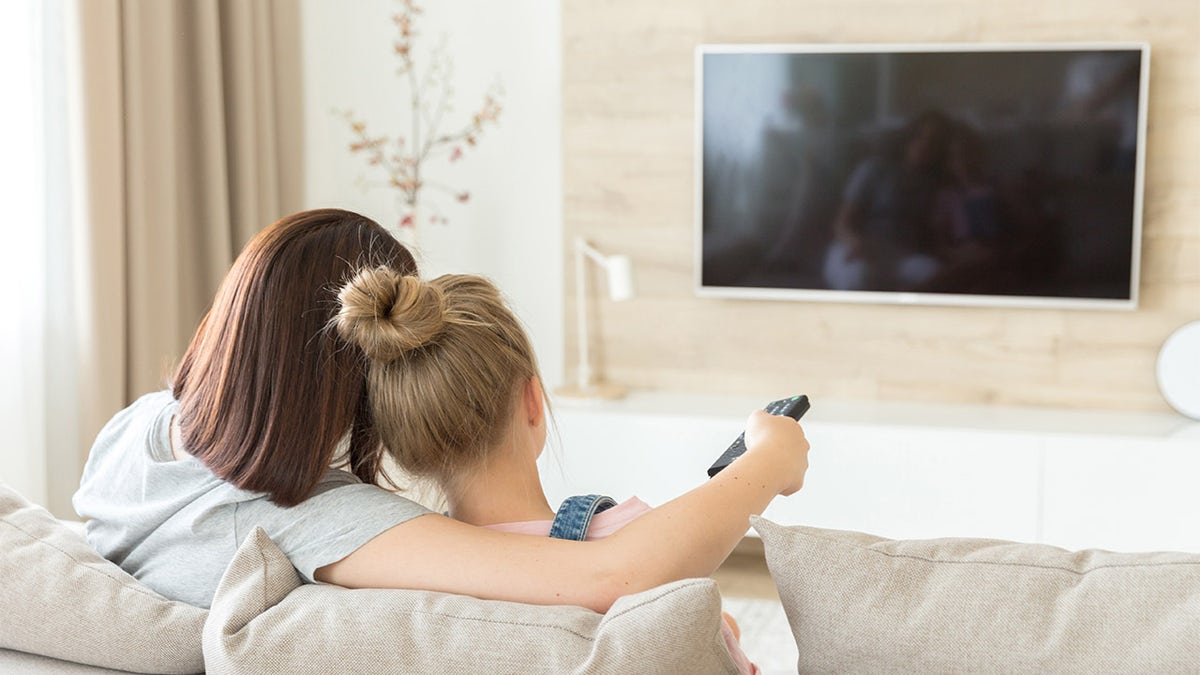Fox News Flash top headlines for October 1
Fox News Flash top headlines are here. Check out what's clicking on Foxnews.com.
As Gabby Petito news coverage continues, one expert is sharing how parents can speak to their children about the case in age-appropriate manners.
Stephanie Samar, a New York-based clinical psychologist who specializes in mood and anxiety disorders in children across the lifespan, spoke with Fox News on the subject.
"We're not sure what exactly happened between Gabby and her fiancé… there’s facts being reported by the news, and then there’s social media investigations going on," said Samar, who also guides adults who are parenting children with emotional and behavioral dysregulation.

A sign is seen during Gabby Petito's memorial service in Holbrook, New York, U.S., September 26, 2021. (REUTERS/Jeenah Moon)
Since Petito’s reported disappearance and death, users have taken to TikTok and YouTube channels to dissect their own versions of the case – many offering speculation, which Samar said teens could be interacting with.
"Because it’s bled into their domains, I think it’s important [that] parents check in," she added.
Samar offered guidance for families looking to navigate conversations with children surrounding the Petito case.
Don't avoid the topic
Big news happens and parents often try to protect their kids by not talking about it, Samar said. Try not to assume your child hasn’t heard about the case.
If they’re not consuming news through devices and social media, they’re likely discussing it with peers. Avoiding talks will result in kids and teens finding their own dramatized (and possibly false) answers.
Ask kids to reveal how they’re consuming information
Find out from kids where they’re getting their news from and sift through what is reputable or bias and more factual, Samar suggests, adding:
"Say, ‘Tell me what you know about this case or this story. And as they’re talking ask, ‘Where did you see that? Can you show me?’" Samar said. "Try to talk through the differences between investigative journalism and people piecing together opinions. "It helps them build that perspective and awareness on what’s factual and what’s there for the clicks."
Follow their lead
Parents don't necessarily have to give up every detail. Instead, ask them what questions they have and respond in an age-appropriate manner.
Samar said that when a child is properly informed, they won’t fixate on how likely it is that this terrible thing will happen to them, or someone they care about.
"Their creative, imaginative minds can create pretty scary scenarios, she said.

Mother and daughter sitting on sofa watching tv, back view (iStock)
Talk about the rareness, likelihood and what protections are in place
If kids are worried about someone’s safety or their own, reiterate how there are people whose jobs are to investigate these incidents to keep them from happening in future.
Remind them of protections, who to ask for help if their safety is compromised and discuss how rare these events are.
SCHOOL BUS DELAYS CAUSING HOUR-LONG WAITS, NO SHOWS
Tailoring talks to be age-appropriate
Think about the short bits of facts you’re willing to share with a young child versus a teen.
"I often see parents go into a lecture, [explaining] a very big picture because they can understand concepts in that way," Samar said. "Teens and children can’t. Keep it bulleted."
Samar said to be mindful of the complexity of what details you’re sharing. For instance, the details behind the bodycam footage may not be an appropriate example for elementary schoolchildren.
Model through your own response
If adults are staying calm about it, it helps. If parents become fixated on these topics, that can send alarm bells for kids.
Try to model calm – especially if you have a child who is more anxious or worried about this than we want them to be.

A flyer of Gabby Petito who is missing, hangs on the door of a store as customers enter in Jackson, Wyoming on September 16, 2021. Photo by George Frey (Backgrid)
What to do if a child is already anxious
If parents are noticing persistent anxiety in kids, Samar said to check in with your mental health provider.
For children who can’t get their minds off heavy news stories, parents can validate their feelings then provide the facts.
Samar said to explain why they’re safe, and try mood-boosting activities.
"Watch a funny movie, do an outdoor activity or a project together. Distraction is a nice tool to get our minds off of our worried thoughts," she added.










































